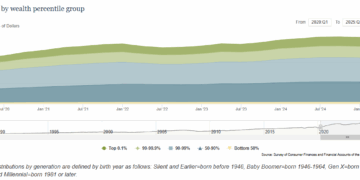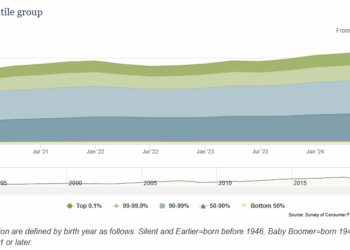President Trump has signed the One Big Beautiful Bill Act into law, and I want to walk you through the significant changes outlined in Title X, which focuses on immigration, law enforcement, and radiation exposure compensation. This title represents one of the most comprehensive overhauls of immigration fees and enforcement funding in recent memory, and it will have far-reaching effects on millions of Americans and immigrants.
Immigration Fee Increases: What You Need to Know
The most immediate impact for many will be the substantial increase in immigration-related fees. The Act establishes new minimum fees across virtually every immigration process, with annual inflation adjustments built in starting in fiscal year 2026.
For asylum seekers, the changes are particularly significant. The Act introduces a $100 minimum fee for filing an asylum application, where previously no fee existed. More concerning for many families, the legislation establishes an annual fee of $100 for each year an asylum application remains pending. This means a family with a case that takes three years to resolve could face $300 in additional annual fees alone.
Employment authorization becomes considerably more expensive under the new law. Initial employment authorization applications for asylum seekers, parolees, and those with temporary protected status will cost a minimum of $550, with renewal fees set at $275. The Act explicitly states that these fees cannot be waived or reduced, removing existing hardship provisions that many low-income applicants currently rely upon.
The legislation also introduces a $1,000 parole fee for most individuals entering the United States under parole authority, though it provides exceptions for medical emergencies, organ donation, attending funerals of immediate family members, and certain other humanitarian situations.
Perhaps most significant for long-term immigrants, the Act establishes a $1,500 fee for adjustment of status applications filed in immigration court, along with $900 fees for appeals and $900 fees for motions to reopen or reconsider cases.
Unprecedented Law Enforcement Funding
The funding provisions in Title X represent a massive investment in immigration enforcement infrastructure. The Act appropriates $29.85 billion specifically for Immigration and Customs Enforcement, with explicit authorization for hiring additional officers, agents, and support staff. This funding includes provisions for performance bonuses, retention bonuses, and signing bonuses for ICE personnel.
The Department of Homeland Security receives an additional $2.055 billion for border enforcement activities, including hiring additional Customs and Border Protection agents and funding for detention and removal operations. Notably, the legislation specifically allocates funding for expanding 287(g) agreements, which allow local law enforcement to perform immigration enforcement functions.
The Department of Justice receives $3.33 billion, with specific mandates to hire up to 800 immigration judges by November 2028 to address case backlogs. However, the legislation also establishes the “Bridging Immigration-related Deficits Experienced Nationwide (BIDEN) Reimbursement Fund” with $3.5 billion to compensate states and localities for immigration enforcement costs.
State and Local Government Implications
The Act creates significant financial incentives for state and local cooperation with federal immigration enforcement. The BIDEN Reimbursement Fund provides grants to states and localities for activities including locating and apprehending undocumented immigrants who have committed crimes, investigating gang activity, and temporary detention of immigrants.
However, these funds come with strict compliance requirements. States and localities that restrict cooperation with federal immigration authorities or prohibit local officials from sharing immigration status information will be ineligible for compensation under the criminal alien incarceration program, which provides federal reimbursement for jailing undocumented immigrants convicted of felonies or multiple misdemeanors.
Technology and Documentation Requirements
The legislation establishes new technological infrastructure, including an Electronic Visa Update System with a $30 enrollment fee and increases to the Electronic System for Travel Authorization fees. These systems will enhance the government’s ability to track and monitor foreign visitors to the United States.
For individuals seeking various forms of immigration relief, the Act introduces a $250 visa integrity fee for nonimmigrant visas and a $24 fee for Form I-94 applications. The legislation also establishes a $5,000 fee for individuals who were ordered removed in absentia and are subsequently arrested, as well as a $5,000 fee for inadmissible aliens apprehended between ports of entry.
Radiation Exposure Compensation Expansion
In addition to immigration matters, Title X significantly expands the Radiation Exposure Compensation Act. The legislation extends the compensation fund through December 31, 2028, and broadens eligibility criteria for atomic testing victims.
The Act expands the geographic scope of covered areas to include additional counties in Nevada and Arizona, while extending the time period for Trinity Test exposure claims in New Mexico through November 1962. Compensation amounts increase to $100,000 for most claimants, representing a substantial increase from previous levels.
Importantly, the legislation adds new categories of covered individuals, including uranium workers in additional states such as Idaho, North Dakota, Oregon, and Texas. It also establishes compensation for communities affected by Manhattan Project waste, covering specific ZIP codes in Missouri, Tennessee, Alaska, and Kentucky.
Implementation Timeline and Considerations
Most fee increases take effect in fiscal year 2025, with annual inflation adjustments beginning in fiscal year 2026. The funding appropriations are designed to remain available through September 2029, providing sustained resources for enforcement activities.
For immigration practitioners and their clients, these changes require immediate attention to case planning and fee preparation. The elimination of fee waivers for most applications will particularly impact low-income immigrants, potentially creating barriers to accessing legal immigration processes.
The substantial increase in enforcement funding, combined with financial incentives for state and local cooperation, suggests a significant shift toward enhanced immigration enforcement nationwide. Communities should prepare for increased immigration enforcement activities and consider the implications for local immigrant populations.
Title X represents a fundamental restructuring of immigration enforcement priorities and funding mechanisms. While supporters argue these measures will enhance border security and immigration system integrity, critics raise concerns about access to legal immigration processes and the financial burden on immigrant families. Regardless of one’s perspective, the scope and scale of these changes will reshape immigration policy implementation for years to come.
For more content, check out the following:
- Understanding Title I of the One Big Beautiful Bill Act: What These Agricultural and Nutrition Changes Mean for You
- Breaking Down the One Big Beautiful Bill Act: What Title II Means for Defense and National Security
- Breaking Down the One Big Beautiful Bill Act: Title III and Its Impact on Financial Oversight
- Breaking Down Title IV of the One Big Beautiful Bill Act: What It Means for Commerce, Science, and Transportation
- Understanding Title V of the One Big Beautiful Bill Act: Energy and Natural Resources
- Understanding Title VI of the One Big Beautiful Bill Act: What It Means for Environmental Programs and You
- Breaking Down Title VII Subtitle A of the One Big Beautiful Bill Act: What the New Tax Changes Mean for You
- Breaking Down Title VII Subtitle B of the One Big Beautiful Bill Act: What Healthcare Changes Mean for You
- Breaking Down Title VII Subtitle’s C and D of the One Big Beautiful Bill Act: What You Need to Know About Finance and Unemployment Changes
- Understanding Title VIII of the One Big Beautiful Bill Act: What These Higher Education Changes Mean for You
- Understanding Title IX of the One Big Beautiful Bill Act: What the $133 Billion in Homeland Security and Government Reforms Mean for You

















































